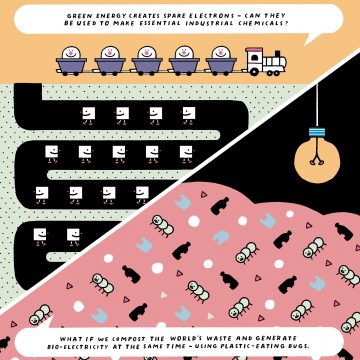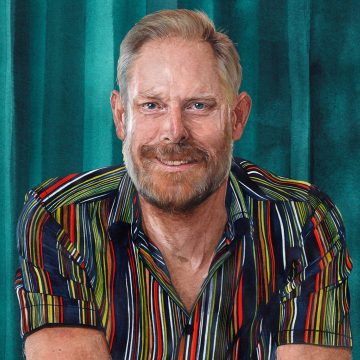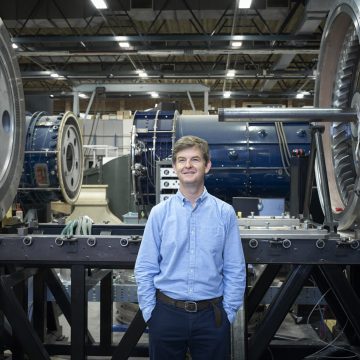A fair transition
If inequality is bad for society and bad for the environment, any change to a more sustainable world has to be fair. But what does a just transition look like?
“The transition to a more sustainable world must have one core value at its heart, and that’s doing no harm,” says Dr Shailaja Fennell, Professor of Regional Transformation and Economic Security, at the Department of Land Economy. “Whatever interventions we make, we must ensure that people in the poorest countries and communities are not worse off than they were before.”
Fennell knows that however we tackle the climate emergency, it’s going to have to work for everyone. A transition that includes dumping plastics in the global South, or allowing rising energy costs to be shouldered by those least able to afford it in the UK, won’t work in the long – or indeed, even the short – term.
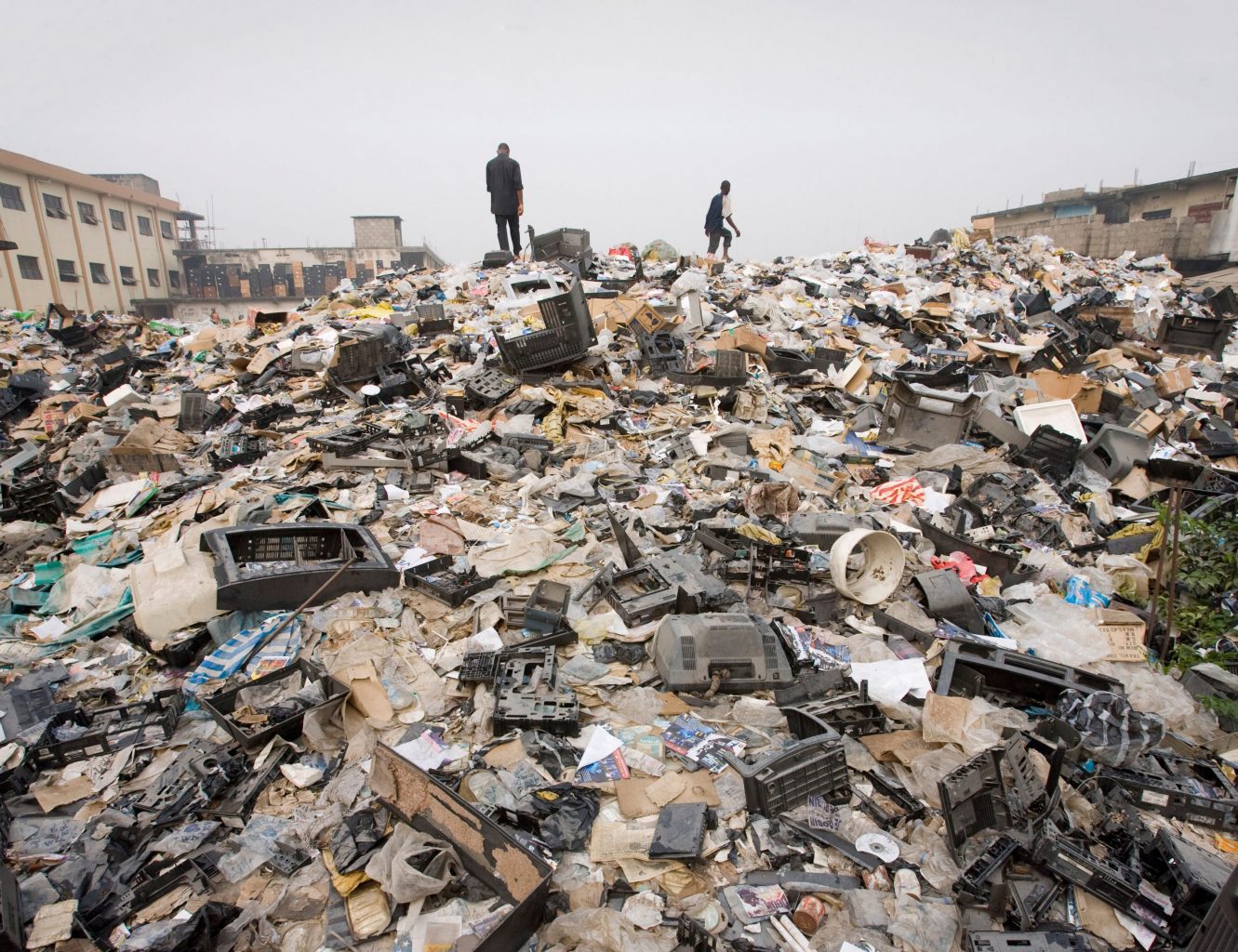
Every year, thousands of tonnes of discarded TVs and other electronic waste arrive here from Western Europe, the US and China. In 2008, using a radio frequency transmitter hidden inside a TV set, Greenpeace tracked its journey from a council-run collection point in the UK to this market, arriving via Lagos Harbour in container no. 4629416.
Image by Peter Essick / Cavan
“Inequality is bad for society and for the environment,” says Dr Anna Barford, Senior Research Associate at the Cambridge Institute for Sustainability Leadership. “In an unequal society, educational attainment and trust goes down, as Richard G. Wilkinson and Kate Pickett show in The Spirit Level: Why More Equal Societies Almost Always Do Better. Homicide, depression and mental health problems increase.
“And you get lower levels of things like recycling. I’m not saying that recycling is the solution to everything. But it’s an indicator of a society where that sense of doing something for the greater good is more prevalent. We need that sense of collective responsibility to tackle the challenges of climate change.”
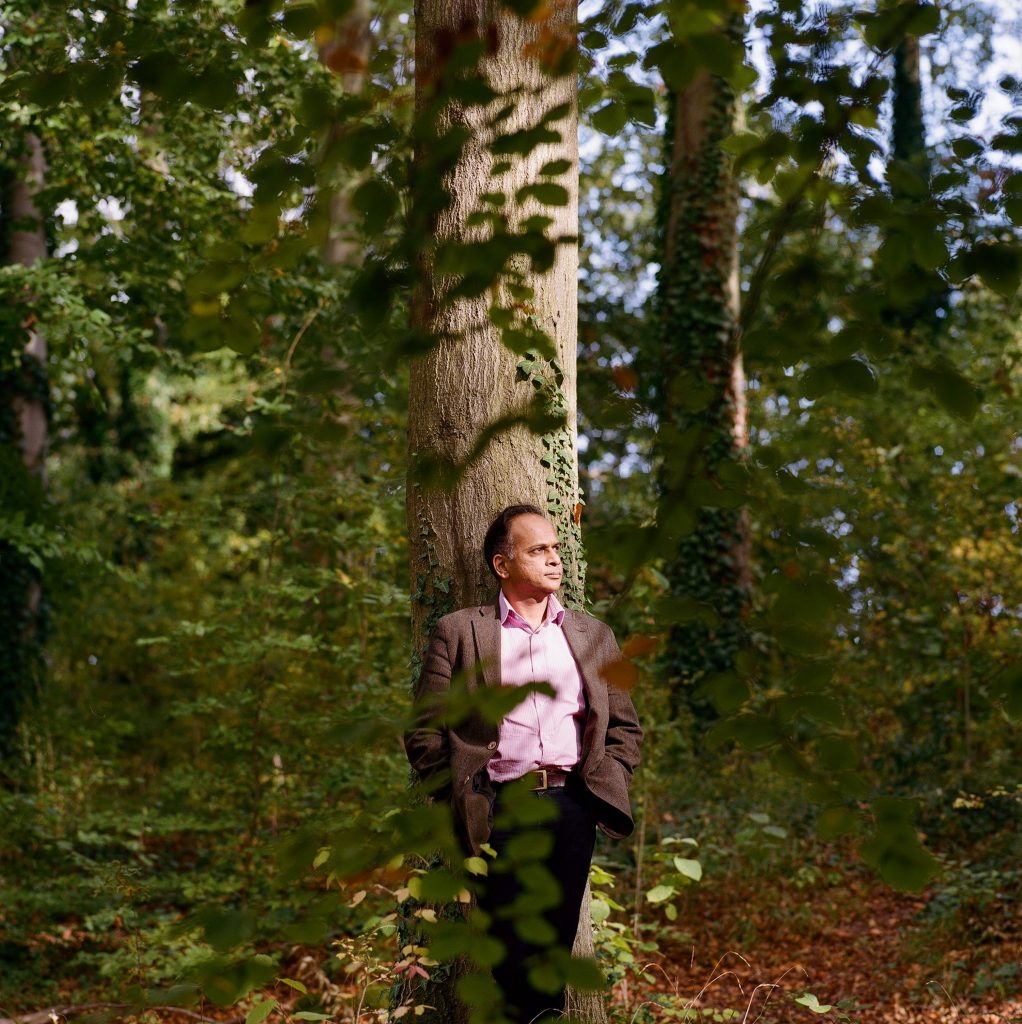
Image by Lydia Goldblatt
How can this ‘just transition’ be achieved? Transparency will be key – particularly around finance. Professor Mizan Khan, of the International Centre for Climate Change and Development (ICCCAD), is Bangladesh’s lead negotiator on climate finance for the United Nations Framework Convention on Climate Change (UNFCCC) process. He points out that many low- and middle-income countries are already overburdened with massive bilateral and multilateral debts, where interest payments outstrip those of the principal. Yet the global North not only refuses to pay the true price of its polluting – it makes more money from it in the form of loans to tackle it.
“In the past decade, developed countries pledged $100bn by 2020 to developing countries to tackle climate change,” points out Khan, who sits on the external advisory board of the Cambridge Global Challenges Strategic Research Initiative. “But the latest figures from the OECD show the figure of $78.9bn delivered in 2018. But Oxfam’s Climate Shadow Finance Report 2020 brings the actual amount down to just $19-22bn as net climate finance. Moreover, the overwhelming share of climate finance is delivered as loans, not grants. This is tragic.”
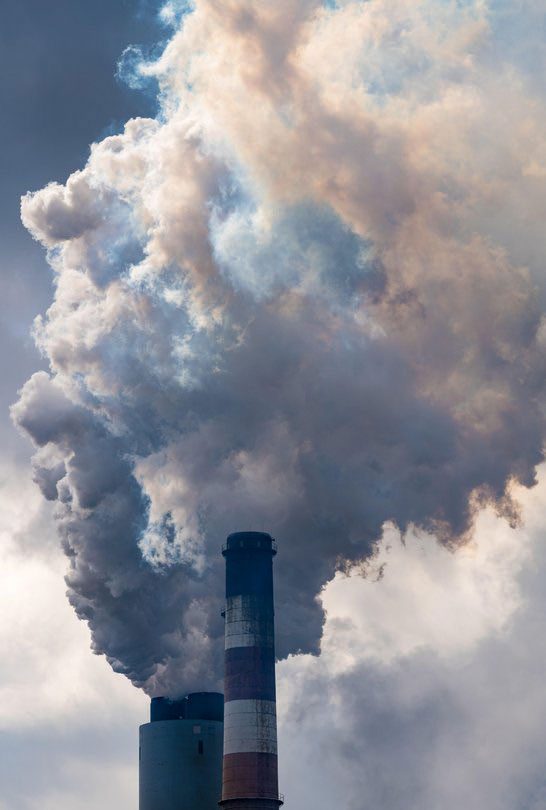
Image by incamerastock / Alamy
In the space of a few months, he points out, the G20 was able to mobilise $11trn as a support package for addressing Covid-19. “But for the past decade, we could not even mobilise $100bn for climate change. Even in 2020, when we were suffering from Covid and the climate crisis, defence expenditure has gone up. And this is largely for perceived threats – not real threats, such as climate change. Threats that policymakers create in their minds. This is where the injustice lies.”
It is also, as ever, a question of history. “Countries in the global North effectively have a debt to the countries of the global South because of their historical emissions,” says Bhaskar Vira, Professor of Political Economy at the Department of Geography. “Some countries have over-consumed historically. They have effectively occupied the space in the atmosphere that might rightly have belonged to other countries.” The United States, for example, has emitted more CO2 than any other single country: its 400 billion tonnes since 1751 make up 25 per cent of global cumulative emissions. Yet it is the global South which suffers disproportionally from its effects.
The small island developing states (SIDS), including Fiji, the Bahamas and the Maldives, together account for less than one per cent of greenhouse gas emissions. But rising sea levels threaten their very existence. Climate reparations, says Vira, could play a key part in a fairer future. “This would mean debt cancellation by way of compensation for the climate debt that the global North owes the global South. The South could then use this money to support their own transition towards net zero.”
A just transition must also be inclusive: everyone’s voices must be heard. “Even in rich countries, the proportion of household income that goes towards personal mobility, transport and energy is higher for the poorest households compared to the richest households,” says Vira. “Transition policies that focus on replacing household boilers or cars will therefore hit the poor disproportionally. We must ensure that the voices of those who feel threatened are heard. We need to include the voices of those who will be the most impacted by climate change, including those in the UK.”
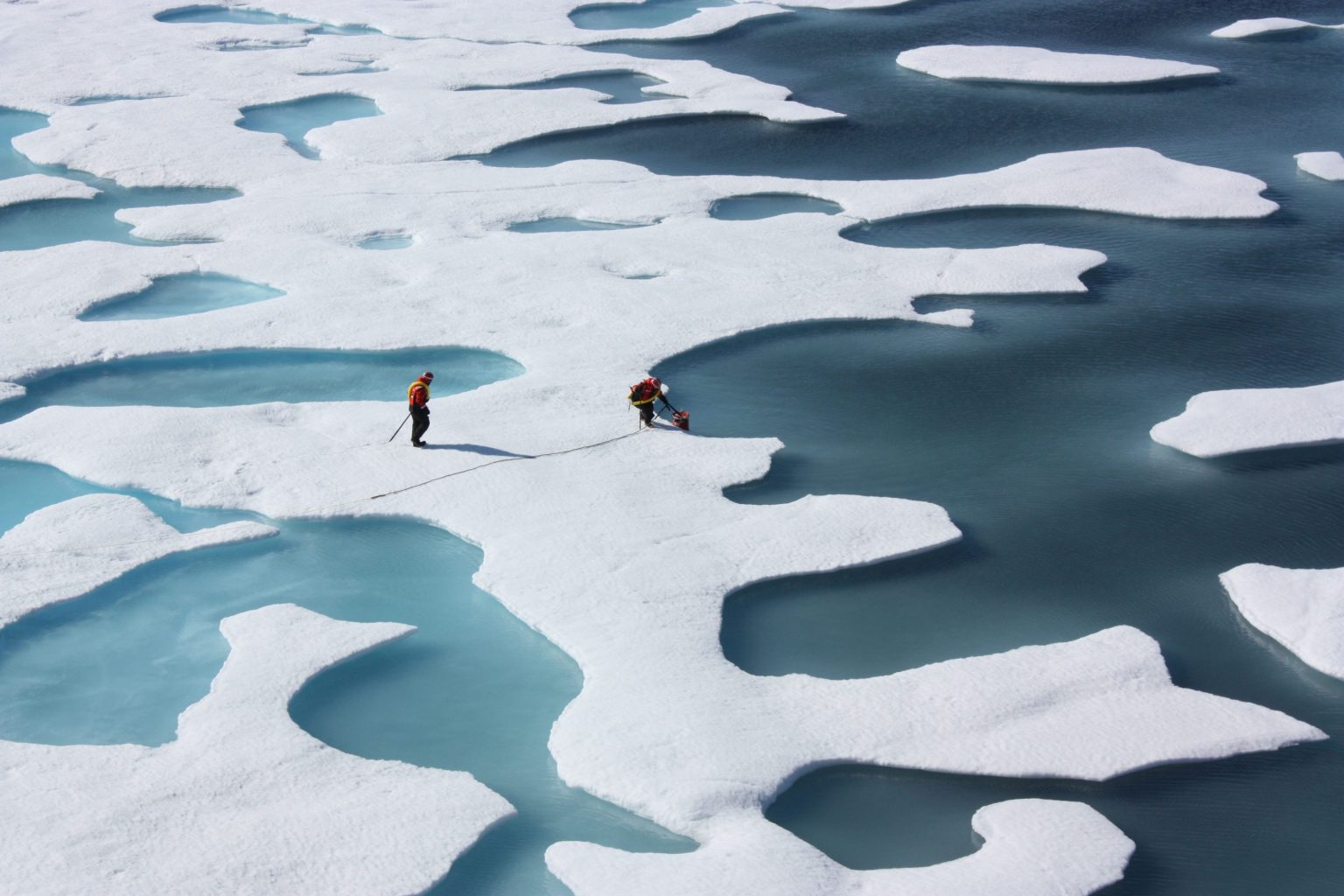
<$100bn mobilised by the G20 for climate change in the past decade
Sea ice melt ponds in Alaska, 2011
Crew from the U.S. Coast Guard retrieve a canister during mission ICESCAPE, a NASA study looking at the chemistry and ecosystems of the Arctic ocean. Image by Kathryn Hansen / NASA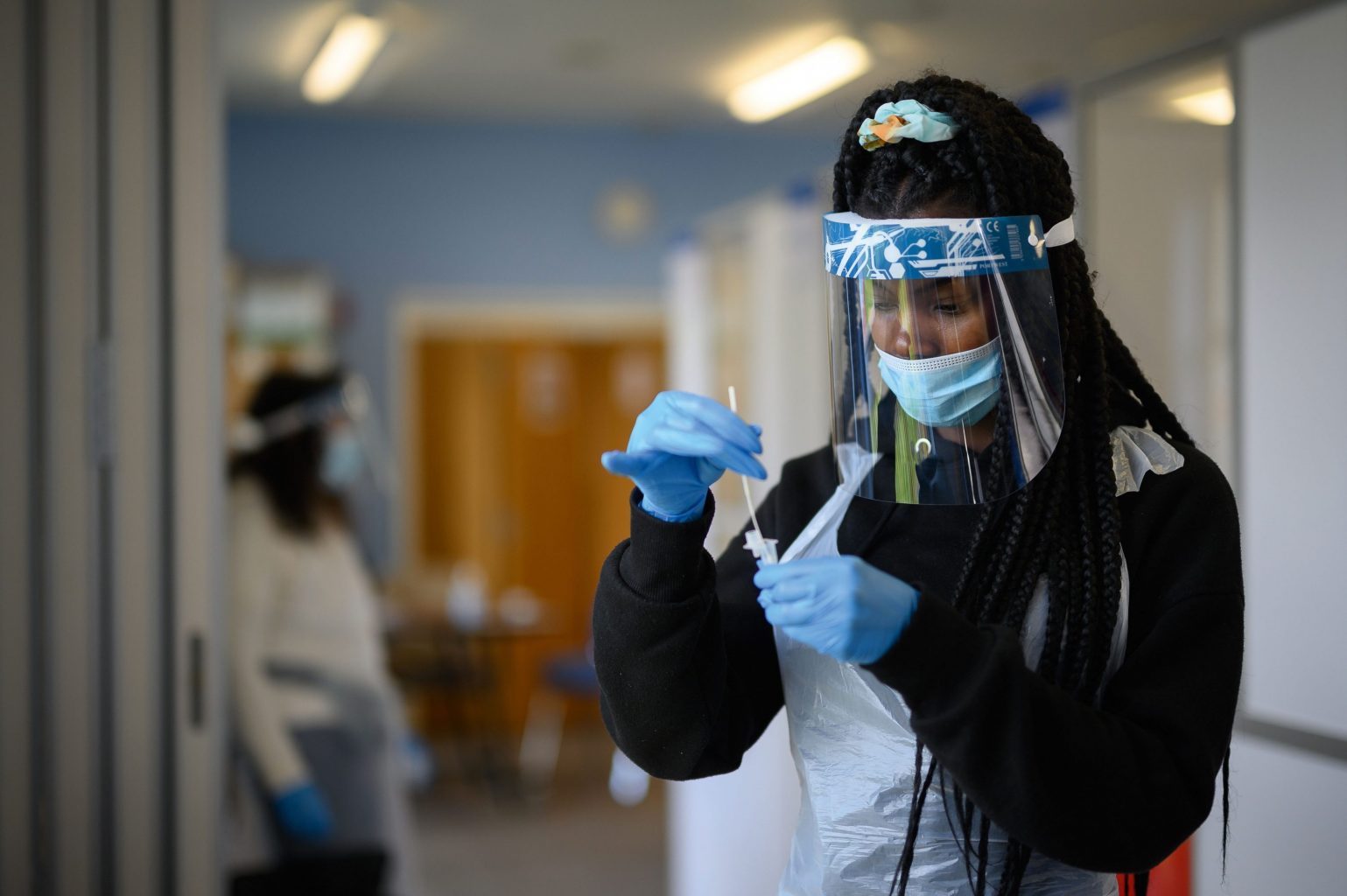
$11trn mobilised by the G20 for Covid-19 in just a few months
Covid-19 testing in Bedford, 2021
A woman processes a swab test at the Faraday Community Centre, an asymptomatic Covid-19 test centre. Image by Leon Neal / Getty
The IPPR’s report, Fairness and Opportunity: A People-Powered Plan for the Green Transition, highlights areas of the UK that are likely to suffer the most in the energy transition: 10 per cent of total employment in Aberdeen City and Aberdeenshire is currently in the oil and gas industry (more than 24,000 jobs in total). The Tees Valley and County Durham is home to 60 per cent of the UK’s energy-intensive industry and generates carbon emissions three times higher than the UK average. Areas such as these must benefit from transition opportunities: subsidies, for example, that allow them to move towards producing green energy.
“Governments have a role to play to cushion the impact on the most vulnerable groups, even within the UK,” says Vira. “As the UK transitions to net zero, we have to ensure that that doesn’t impact the poorest and the most vulnerable groups. Market forces won’t be enough. It will need government intervention – and that resonates with the government’s agenda around levelling up.”
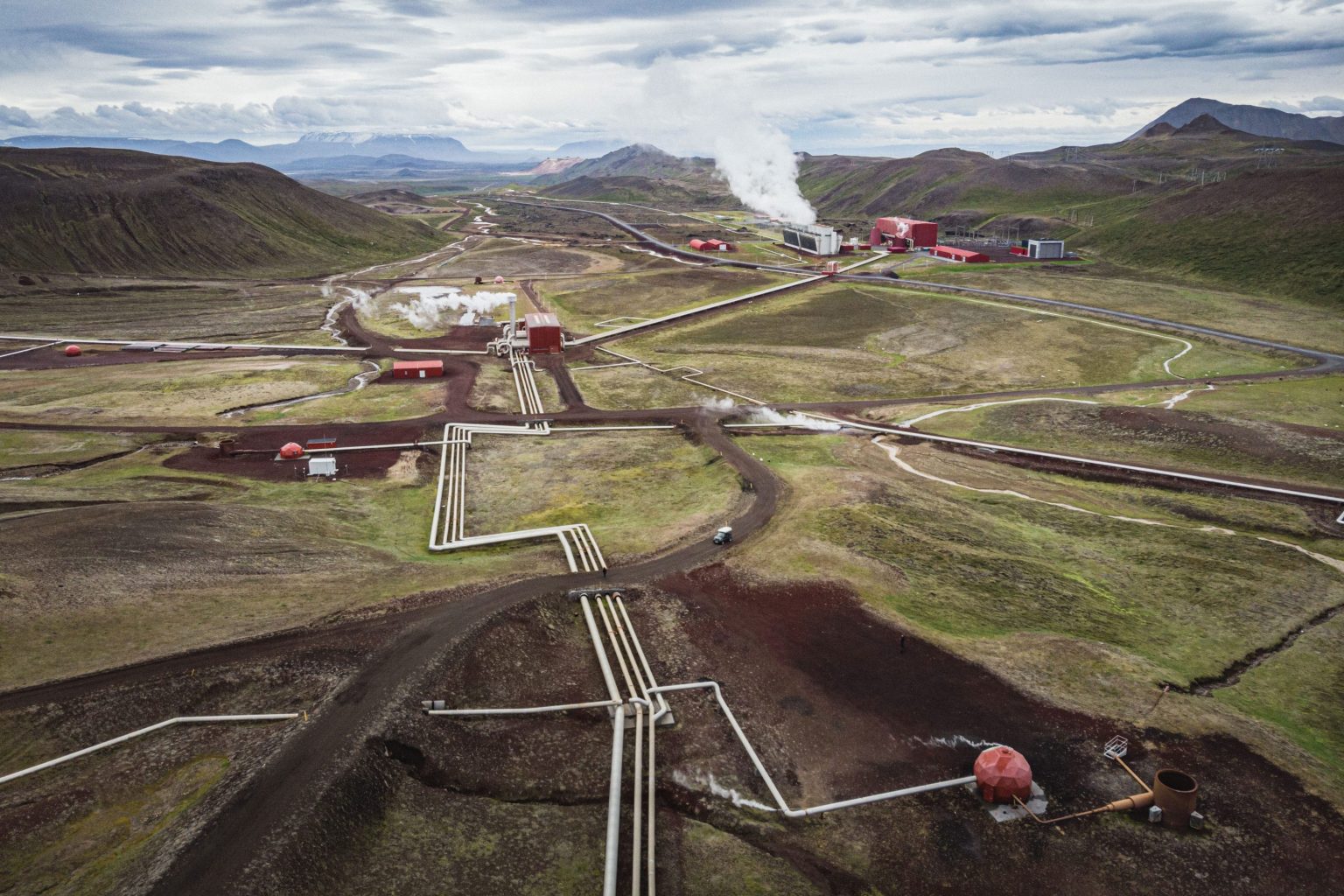
Krafla power station, Iceland
Emissions from this geothermal power station are reinjected back into the geothermal wells, where they react with basaltic subsurface rocks to form stable minerals for safe, long-term storage.
Image by Simone Tramonte
Because the politics of it all will matter. Any government intervention will need to be locally focused and designed in partnership with those who will be affected. “If people are not on board, it will not be either sustainable or long-lasting,” says Dr Cristina Peñasco, Lecturer in Public Policy at the Department of Politics and International Studies (POLIS). “If these actions are not well designed, all these ideas of building back better and levelling up will not happen – and we can’t afford that any more.”
For example, the circular economy model offers vast benefits in terms of less pollution, less exploitation of natural resources and better use of materials, says Anna Barford. “It’s about being more careful and caring about the things that we use, so that we can extend their lifespans and move away from this disposable society. But you must do that with an eye on what is happening in society – to jobs and to access to things as service models change. There has to be provision to ensure that the things people need stay within their means.”
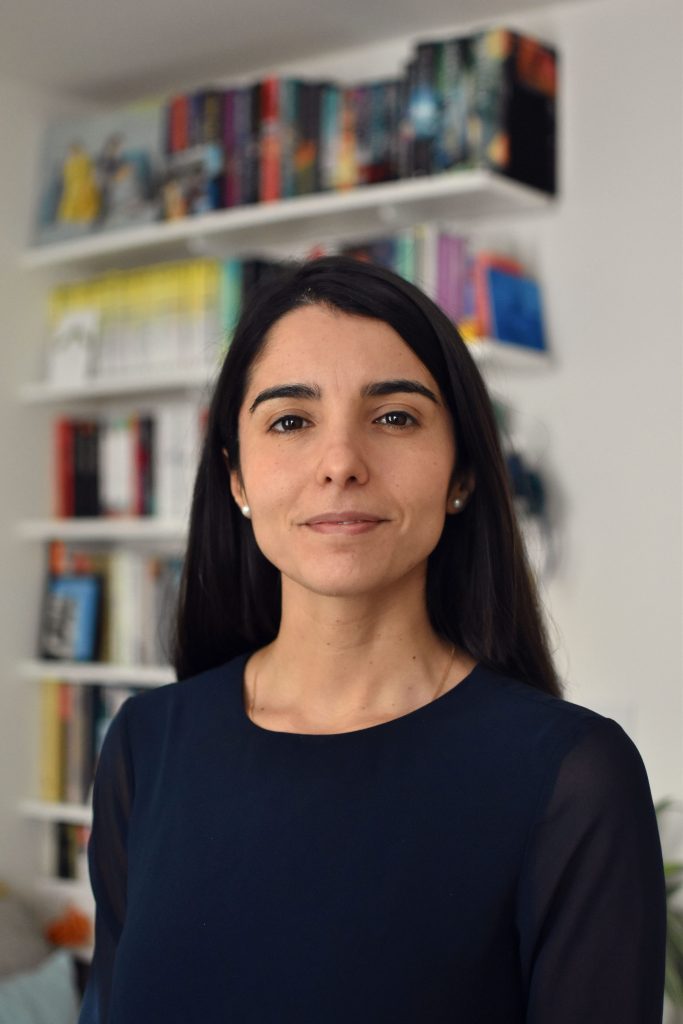
The vast amount of knowledge around nature-based solutions, resulting from the lived experience of indigenous populations in local communities, must be acknowledged and used, says Dr Sara Serradas O’Holleran, Research Strategy Manager at Cambridge Global Challenges.
“These populations own and very sustainably manage more than a quarter of the global land area, but their traditional and local knowledge – climate-smart practices on crop production, water collection and use, and managing sustainable agroforestry systems, for example – is on the verge of extinction.
“There is some progress on this: in 2019, the Intergovernmental Panel on Climate Change (IPCC) recognised that indigenous peoples in local communities can play a fundamental role in addressing climate change. Not including the global South means missing out on key knowledge for a successful transition. Both Cambridge Global Challenges and ICCCAD are acting on this problem by looking to combine Indigenous Peoples and Local Communities (IPLC) knowledge and scientific knowledge for adaptation to climate change in the most vulnerable countries.”
Along with this local knowledge, research – about what works and what doesn’t – needs to be readily available to all. Peñasco’s team recently released an online policy evaluation tool as part of the Innovation Pathways for a Low-carbon Transition (INNOPATHS) project co-ordinated by Professor Paul Ekins at UCL. It is co-directed at Cambridge by Professor Laura Diaz Anadon and Professor Elena Verdolini and funded in the EC’s Horizon 2020 framework. It allows policymakers around the world to see the real-world positive and negative effects of policies such as a carbon tax. “And that enables us to learn from past mistakes, reverse those negatives and transform them into positives,” says Peñasco.
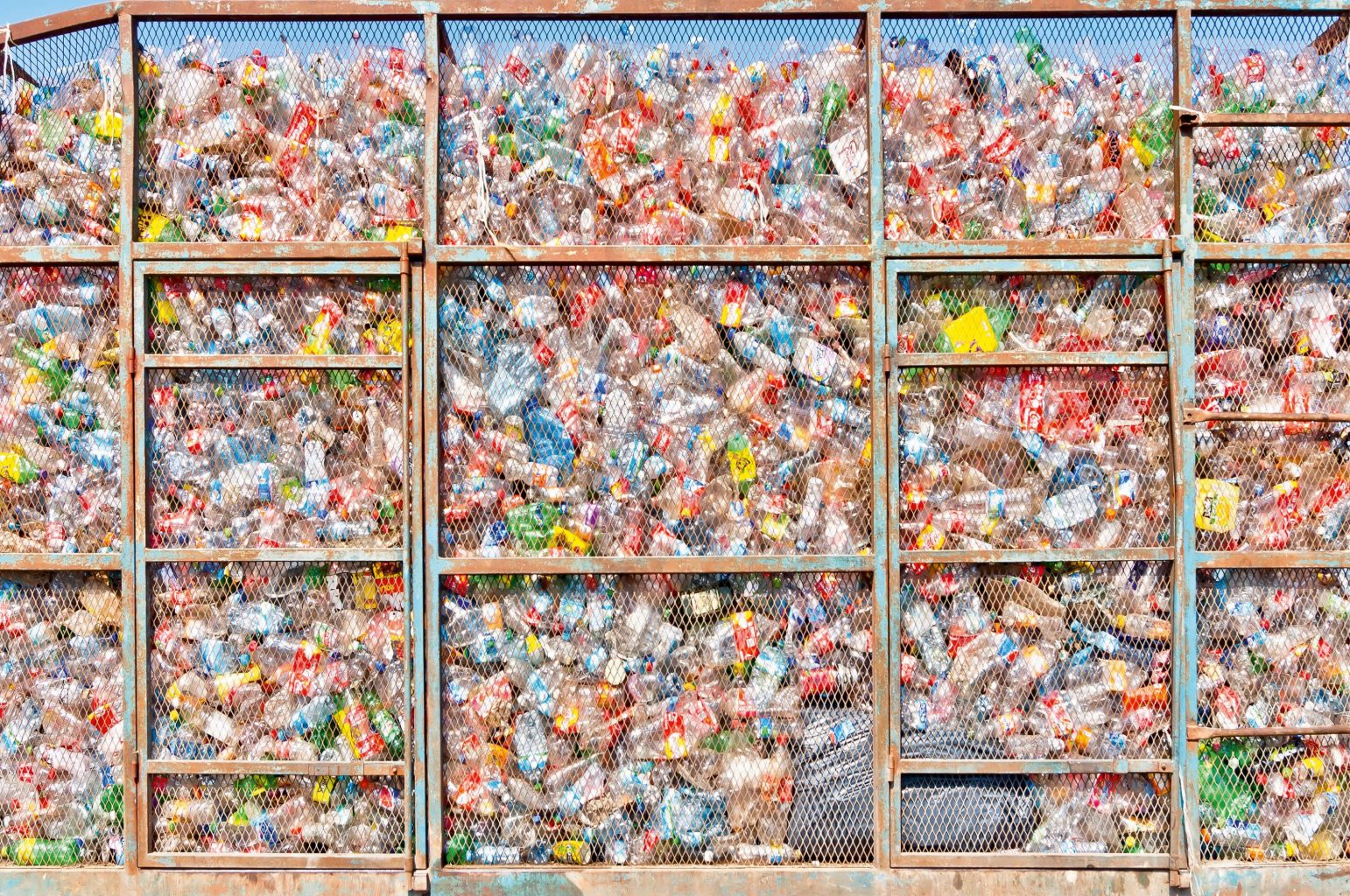
Image by Eddy Galeotti / Alamy
Fennell is leading the team that has delivered a survey of the latest research to the first ASEAN Development Outlook (which focuses on ensuring inclusion and sustainability in South-East Asia), that was launched at the end of August 2021. She has been working in close collaboration with researchers across this vast and diverse region to investigate four themes: identity and culture; disaster management and climate change; the changing world of work and health; and human security. The team used Foresight, a set of thinking tools, that allowed them to take a particular problem and look at the impact. “For example, the use of plastics: what should be the solution? Should it be taxed? Would better education be more effective? What are the risks and the returns? We are becoming more knowledgeable and therefore our own capacity to solve these collective action problems is increasing.”
Making a just transition will not be easy. But it remains the right – and most practical – way forward, politically, socially and for the climate. “There is a very strong moral case to address poverty, and just imagine what the people who are currently living in poverty could contribute to society if we did that,” says Barford. “Imagine the innovation and ingenuity that we could all benefit from if they had had a different set of opportunities.”

